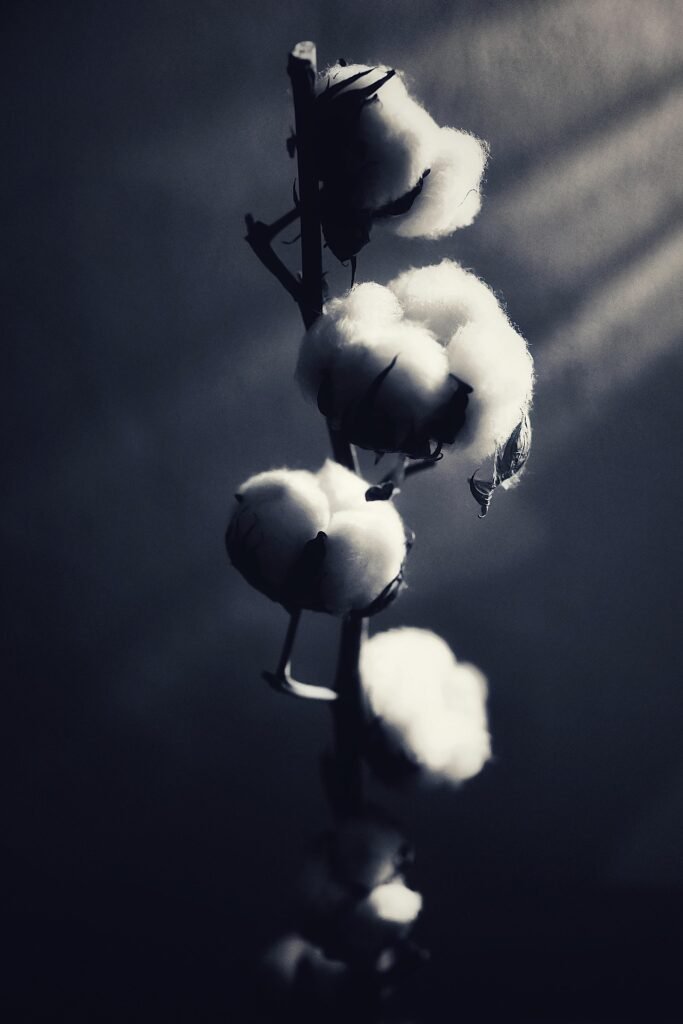Cotton Fabric: A Timeless Favorite in Fashion and Daily Life
(Uses, Characteristics, Pros & Cons)
Cotton—soft, breathable, and so comfortable—is a fabric that nearly everyone has a personal connection with. Whether it’s your go-to T-shirt, cozy bedsheets, or baby’s first onesie, cotton has been a staple in wardrobes and homes for thousands of years. But what exactly makes cotton such a popular choice, even in a world full of synthetic alternatives like polyester and nylon?
Let’s dive into the world of cotton fabric, explore its origins, characteristics, uses, benefits, drawbacks, and how it stands up to other fabrics.

What is Cotton Fabric?
Cotton is a natural fiber derived from the fluffy seed hairs of the cotton plant. These fibers are cleaned, spun into yarn, and then woven or knitted into fabric. With a history dating back over 7,000 years, cotton has been an essential textile in cultures around the globe.
Cotton thrives in warm regions like India, the U.S., China, Pakistan, and Brazil. Once harvested, it’s processed in textile mills into the soft fabric we all know and love.
Key Characteristics of Cotton Fabric
- Softness: Gentle on the skin, perfect for clothes and baby wear.
- Breathability: Allows airflow, ideal for hot and humid weather.
- Absorbency: Can soak up to 27 times its own weight in water—great for towels and bathrobes.
- Hypoallergenic: Less likely to cause skin irritation or allergies.
- Durability: Withstands frequent washing while maintaining strength.
- Wrinkle-Prone: Easily creases unless blended or treated.
- Shrinkage: Can shrink in high heat during washing or drying.
Common Types of Cotton
- Upland Cotton: Most widely used in basics like T-shirts and jeans.
- Egyptian Cotton: Luxuriously soft and strong; ideal for bedding.
- Pima Cotton: High-quality cotton grown in the U.S., similar to Egyptian.
- Organic Cotton: Grown without pesticides or chemicals, better for the planet.
Everyday Uses of Cotton
- Clothing: T-shirts, jeans, shirts, undergarments, dresses, and socks.
2. Home Textiles: Bed linens, towels, curtains, tablecloths.
3. Medical Supplies: Gauze, cotton pads, sanitary products.
4. Industrial Use: Canvas, uniforms, fire-resistant wear (when treated).
5. Crafts & DIY: Embroidery, quilting, and hand-sewn projects.
Benefits of Cotton Fabric
- Comfortable to Wear: Soft, breathable, and gentle on the skin.
- Hypoallergenic: Safe for sensitive skin and babies.
- Highly Absorbent: Great for warm-weather clothing.
- Eco-Friendly (When Organic): Biodegradable and sustainable.
- Versatile: Works across fashion, home, and industrial uses.
- Easy to Dye: Holds colour well for vibrant, lasting shades.
Downsides of Cotton
- Wrinkles Easily: Needs regular ironing or blending with other fibers.
- Shrinkage Risk: Can shrink without proper washing care.
- Fades Over Time: Especially under sunlight or frequent washing.
- Environmental Impact: Conventional farming uses pesticides and lots of water.
- Water Usage: Cotton cultivation is water-intensive.
Cotton vs Other Fabrics: A Quick Comparison
| Feature | Cotton | Polyester | Silk | Linen |
| Type | Natural | Synthetic | Natural | Natural |
| Softness | High | Medium | Very High | Medium |
| Breathability | High | Low | High | High |
| Durability | High | Very High | Medium | Medium |
| Wrinkling | High | Low | Low | Very High |
| Care Needs | Easy | Easy | Delicate | Moderate |
Choosing Sustainable Cotton
If you’re eco-conscious, look for:
- Organic Cotton: Grown without harmful chemicals.
- Recycled Cotton: Made from post-consumer or industrial waste, reducing environmental impact.
Cotton Care Tips
To keep your cotton garments in top shape:
- Wash in Cold Water – Reduces shrinkage and fading.
- Avoid High Heat Drying – Air-dry to preserve fabric.
- Iron on Medium Heat – Removes wrinkles easily.
- Store Well – Fold or hang to maintain form and freshness.
Final Thoughts: Is Cotton Right for You?
If you value comfort, breathability, and adaptability, cotton is a fantastic choice. It’s a fabric that’s stood the test of time—adapting, evolving, and continuing to support everyday living. While it does have some drawbacks, especially from an environmental standpoint, sustainable cotton options are making it a more responsible choice than ever.
In Summary
- Pros: Soft, breathable, skin-friendly, biodegradable, versatile.
- Cons: Wrinkles, shrinks, fades, water-intensive.
- Best For: Daily wear, summer outfits, baby clothes, home linens.
Cotton remains a classic, timeless choice—for good reason.
